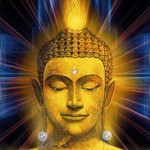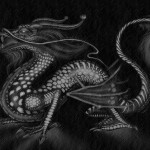Recent Comments
- Chodpa on The Place where the Primordial Speaks
- Chodpa on The Cuckoo of Presence
- Afzar on Bodhidharma’s teacher, Prajnatara
- Vajragoni on Audiobook is released
- Scott on Audiobook is released
-
Recent Posts
Categories
- A Darkness Visible
- A Docetic Assessment
- A Mystical Odyssey through the Sagathakam
- AI Creations
- Akṣayamatinirdeśasūtra
- Akṣhobhya’s Pure Land
- Ālaya-vijñāna
- Anūnatvāpūrṇatvanirdeśaparivarta
- Ariyapariyesanā Sutta
- Ascending the Noble Mountain of Primordial Perfection
- Asceticism
- Ashtavakra Gita in Light of the Unborn
- Audiobook
- Bankei Zen
- Beyond the Ascent
- Beyond the Rainbow Body
- Black Dragon Eye Mandala
- Bodhicitta
- Buddhadharma
- Buddhism’s Black Holes
- Buddhist Anecdotes
- Buddhist Hells
- Buddhist Meditations on the Tarot
- Chuang-Tzu
- Contemporary Musings
- Ḍākiṇī
- Dāsbodh
- Dharmakaya Abbey
- Dharmakaya Stick
- Divine Revelation
- Doctrine of the Void
- Dust Contemplation
- Ekacitta: Advanced Studies in Dark Zen
- Entry into the Dharmadhātu
- Eremitical Dhyani Meditations
- Exploring the Book of Revelation
- Gnostikos
- Hsin Hsin Ming
- Journey to the Center of the Mind
- Karma and Rebirth
- Korean Sŏn
- Kulayarāja Tantra—The Motherly Buddha
- Little Office of Our Lady of the Void
- LSD and Psychedelic Buddhism
- Māṇḍukya Kārikā
- Mañjuśrī Teaches Prajñāpāramitā
- Māra and Satan
- Meister Eckhart
- Mud and Water: Bassui Zen
- Mystagogia
- Nirvana
- Notes from the Iron Stupa
- Nothingness in Nāgārjuna and John of the Cross
- Obscure Religious Cults
- Preparation for the Afterlife
- Primordial Qigong
- Reflections on the Saṃdhinirmocana Sūtra
- Spirituality
- Springtime with Tozen
- Terma: A Mind Film by Vajragoni
- The Afterglow
- The Awakening of Faith
- The Bhagavad Gita
- The Book of Bodhi
- The Cloud of Unknowing in Light of the Unborn
- The Diamond Sutra
- The Divine Ātman
- The Divine Liturgy of Vajrasattva
- The Doctrine of Awakening
- The Dragon Mind of Zen Tarot
- The Elucidation of Consciousness
- The Experience of No-Self
- The Great Perfection of the Unborn Mind: A Book of Privy Counseling
- The Heart Sutra
- The Hermit's Den
- The Khaggavisāṇa Sutta: A Rhinoceros Horn
- The Lankavatara Sutra
- The Lankavatarian Book of the Dead
- The Lion's Roar of Queen Śrīmālā
- The Lotus Sutra
- The Mahāparinirvāṇasūtra
- The Naga Chronicles
- The Platform Sutra
- The Ratnagotravibhāgaśāstra
- The School of the Spirit
- The Secret Golden Light of the Unborn
- The Soul
- The Śūrańgama Sūtra
- The Sutra of Primordial Enlightenment
- The Tathāgatagarbhatārā Tantra
- The Udāna
- The Unborn Mind Mythos
- The Unborn Mind Sessions
- The Unborn Odyssey: A Novel
- The Vajrasamādhi Sutra
- The Vimalakirti Sutra
- The Yogasūtras of Patañjali
- The Zen Teaching of Bodhidharma
- The Zen Teaching of Instantaneous Awakening
- The Zen Teachings of Huang Po
- Theologia Mystica
- Tozen Teaching
- Tsung-mi: An Intimate Study
- Unborn I Ching
- Unborn Light Reiki
- Uncategorized
- Vasubandhu and the Absolute
- Wisdom from the Masters
- Wordsworth and Zen
- Yoga of the Manomayakāya
- Zen
- Zuowang
Archives
- October 2024
- August 2024
- February 2024
- January 2024
- December 2023
- November 2023
- October 2023
- September 2023
- August 2023
- July 2023
- June 2023
- May 2023
- April 2023
- March 2023
- February 2023
- January 2023
- December 2022
- November 2022
- October 2022
- September 2022
- August 2022
- May 2022
- April 2022
- March 2022
- February 2022
- January 2022
- December 2021
- November 2021
- October 2021
- September 2021
- August 2021
- May 2021
- April 2021
- March 2021
- February 2021
- January 2021
- December 2020
- November 2020
- October 2020
- September 2020
- August 2020
- May 2020
- April 2020
- March 2020
- February 2020
- January 2020
- December 2019
- November 2019
- October 2019
- September 2019
- August 2019
- June 2019
- February 2019
- January 2019
- December 2018
- October 2018
- August 2018
- April 2018
- March 2018
- February 2018
- January 2018
- December 2017
- November 2017
- October 2017
- September 2017
- August 2017
- May 2017
- April 2017
- March 2017
- February 2017
- January 2017
- December 2016
- November 2016
- October 2016
- September 2016
- August 2016
- July 2016
- May 2016
- April 2016
- March 2016
- February 2016
- January 2016
- December 2015
- November 2015
- October 2015
- September 2015
- August 2015
- July 2015
- June 2015
- May 2015
- April 2015
- March 2015
- February 2015
- January 2015
- December 2014
- November 2014
- October 2014
- September 2014
- August 2014
- May 2014
- April 2014
- March 2014
- February 2014
- January 2014
- December 2013
- November 2013
- October 2013
- September 2013
- August 2013
- May 2013
- April 2013
- March 2013
- February 2013
- January 2013
- December 2012
- November 2012
- October 2012
- September 2012
- August 2012
- May 2012
- April 2012
- March 2012
- February 2012
- January 2012
- December 2011
- November 2011
- October 2011
Meta
Tag Archives: cessation
Siddhattha’s Enlightenment

The following is what occurred during Siddhattha’s awakening beneath the Bodhi-Tree. The sacred snapshot of him sitting reflectively on a grassy knoll is known as sitting on the Throne of Wisdom. Having departed from the game of samsara at the age of twenty-nine, then practicing severe austerities for six years, he was now thirty-five years of age and thus more fully seasoned to be cloaked with the mantle of deathlessness. He was more fully prepared for Mara’s greatest molestations. Attempting to entice Siddhattha with every sensual device possible, Mara is justly rebuked and vanquished by the young and aspiring noble arhat. The Bodhisatta then became attuned to all of his previous incarnations; afterwards there was no more karma to burn in Light of the True Home of the Deathless—yea, he burned-off all his past karmic associations. It was during the middle-watch of that illuminative night that Siddhattha developed the Divine-Eye, which empowered him during the last watch to contemplate the Law of Dependent Origination, which was soon accompanied with the insight into the arising and cessating of the Five Aggregates of skandhic-grasping.
To Tell the Truth

For Baby-Boomers the old TV Game-Show, To Tell the Truth, has some fond memories, in particular during its Black & White heydays from the mid-50’s into the mid-60’s. Its inception runs as follows:
Posted in Spirituality, The Lion's Roar of Queen Śrīmālā
Tagged cessation, dukkha, eternalism, nihilism, Pratyekabuddhas, suffering, Tathagata, Tathāgatagarbha, Tathagatagarbha as soteriological principle, the four Maras, The four reliance’s, the four wrong views, The Noble Truths, the ten powers, To Tell the Truth
Leave a comment
Praxis: Part II

(Hakeda)
The Practice of Cessation
Should there be a man who desires to practice “cessation,” he should stay in a quiet place and sit erect in an even temper. [His attention should be focused] neither on breathing nor on any form or color, nor on empty space, earth, water, fire, wind, nor even on what has been seen, heard, remembered, or conceived. All thoughts, as soon as they are conjured up, are to be discarded, and even the thought of discarding them is to be put away, for all things are essentially [in the state of] transcending thoughts, and are not to be created from moment to moment nor to be extinguished from moment to moment; [thus one is to conform to the essential nature of Reality (dharmatā) through this practice of cessation]. And it is not that he should first meditate on the objects of the senses in the external world and then negate them with his mind, the mind that has meditated on them. If the mind wanders away, it should be brought back and fixed in “correct thought.” It should be understood that this “correct thought” is [the thought that] whatever is, is mind only and that there is no external world of objects [as conceived]; even this mind is devoid of any marks of its own [which would indicate its substantiality] and therefore is not substantially conceivable as such at any moment.
Praxis: Part I

(Hakeda)
Part 4
On Faith and Practice
Having already discussed interpretation, we will now present a discussion of faith and practice. This discussion is intended for those who have not yet joined the group of beings who are determined to attain enlightenment.
Posted in The Awakening of Faith
Tagged attainment, cessation, faith, meditation, samyaktvaniyata-rāśi, suffering, vipaśyanā
7 Comments
raison d’être
(Hakeda)
- The Characteristics of Beings in Saṃsāra
In analyzing the characteristics of beings in saṃāra, two categories may be distinguished. The one is “crude,” for [those who belong to this category are] united with the [crude activities of the defiled] mind; the other is “subtle,” for [those who belong to this category are] disunited from the [subtle activities of the defiled] mind. [Again, each category may in turn be subdivided into the cruder and the subtler.] The cruder of the crude belongs to the range of mental activity of ordinary men; the subtler of the crude and the cruder of the subtle belong to that of bodhisattvas; and the subtler of the subtle belongs to that of buddhas.
Posted in The Awakening of Faith
Tagged cessation, raison d'être, Suchness, suffering
Leave a comment
